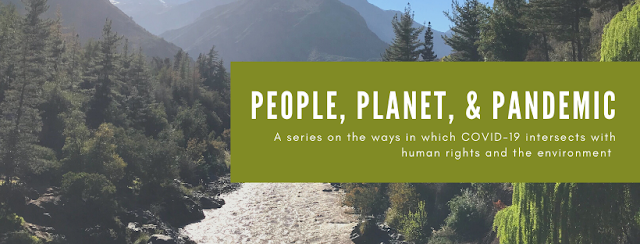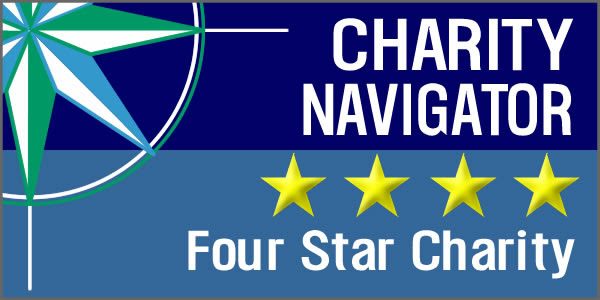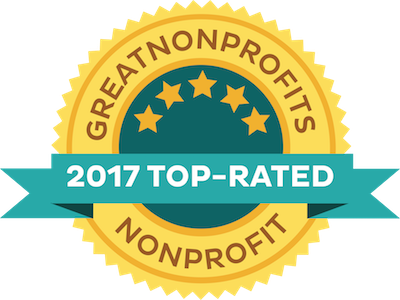Dear Jon,
Over the past few weeks, we continue to see the diverse ways in which the COVID-19 pandemic intersects with human rights and the environment. Today, we share a few more of these stories in our ongoing People, Planet, & Pandemic series, from Chile to the Arctic to the US state of Louisiana. What follows are stories about how the pandemic is deepening the crisis caused by construction of a hydroelectric project in Chile, compounding health concerns for communities living in the shadow of petrochemical plants, and impacting global climate action.
Pandemic Deepens Hydroelectric Project Crisis in Chile
Since construction began on the Alto Maipo Hydroelectric Project outside Santiago, Chile, local activists have sounded the alarm on its devastating environmental impacts. Developers are boring through the Andes Mountains, and the 67 km of tunnels will eventually be used to redirect the water from the nearby Maipo River and its tributaries. An intervention of this magnitude in a critical river system can bring numerous, far-reaching harms — and already, Alto Maipo is contributing to the desertification of the Maipo River Basin, a source of water on which over seven million Chileans depend. As local residents often point out, Alto Maipo is emblematic of so-called “development” projects that are pushed forward with little regard for their destructive impacts on the surrounding environment and local communities.
Amid the COVID-19 pandemic, the Alto Maipo project poses a heightened threat to Chileans’ water supplies and basic well-being. Before the pandemic, residents of the Maipo River Valley had faced worsening water shortages resulting from a decade-long mega-drought. Now, official health advice related to COVID-19 — such as washing hands and cleaning living spaces frequently — means that having secure access to water is more critical than ever. Moreover, as the construction of Alto Maipo continues, despite extended lockdown measures affecting most of the Chilean population, project workers from outside the area have introduced COVID-19 to the community, thereby increasing the exposure risk for local residents to contract the virus.
To hear about the impacts of the Alto Maipo project directly from our Chilean partners Marcela Mella and Juan Pablo Orrego join us for a webinar on July 21 at 10am EST. Register here. NOTE: The webinar will be held in Spanish only.
Maintaining Climate Momentum Through a Pandemic
Before COVID-19, 2020 was supposed to be a year for unprecedented climate action. Coming into the year, the youth movements for climate justice were gaining widespread attention through mobilizations like Fridays for Future. Countries were expected to put forward new, more ambitious climate action plans in accordance with the Paris Agreement and ahead of the 2020 United Nations Climate Change Conference.
Then, one by one, international climate meetings in Bonn, Glasgow, and elsewhere were delayed due to the outbreak. While prioritizing the pandemic as the most urgent short-term threat is of paramount importance, the health and safety of communities worldwide are also at risk from the climate crisis. The climate talks originally scheduled in 2020 — now postponed to the following year — provide a critical space for countries around the world to participate in climate decision-making, and for civil society to engage and bring diverse voices and experiences forward. Delaying such talks for a year risks stifling the momentum built by civil society and the youth in 2019, at a time when we can ill afford to defer ambitious climate action.
2020 is already on track to be one of the hottest years on record, with a record-shattering heatwave blistering the Arctic Circle and unusually strong downpours triggering major floods across South and Eastern Asia. Yet governments are rolling back critical environmental protections and pausing climate action in the wake of the pandemic — and at the same time that they are bailing out fossil fuel companies and other polluting industries, and stalling environmental progress that will neither save our economy nor our planet. Ultimately, the global response to the COVID-19 crisis will have significant impacts on its response to the climate crisis as well.
The Disproportionate Dangers of Petrochemical Expansion in the US
The adverse health effects of petrochemical production have been known for years. Yet rather than lowering toxic emissions, the plastic and petrochemical industry has instead actively undermined and denied scientific claims of their risks, often with government complicity. And the petrochemical industry continues to expand.
In the United States, petrochemical plants are primarily proposed and constructed in communities of color along the Gulf Coast and Appalachia. A region of Louisiana has been called “Cancer Alley” due to the overwhelming number of petrochemical plants poisoning the air with severe health implications — from respiratory impairments to a variety of cancers, including liver, skin, bladder, kidney, and lung. The government has played a large role in not just allowing but also enticing such industry to expand in their states. Louisiana Economic Development (LED) actively recruits petrochemical and fossil fuel companies, then allows local councils to ambiguously label land as “residential/future industrial” without identifying existing neighborhoods and communities on maps. This allows new plants to be proposed in residential areas without consideration for the people who live there.
Now, COVID-19 has become yet another health threat that disproportionately impacts these communities. Air pollution weakens the immune system, compromising the ability to fight off infection. It has also been tied to conditions like inflammatory lung disease and coronary heart disease. All of this puts people at higher risk for severe cases of COVID-19. Plus, air pollution particles may be carrying and spreading the virus themselves. But rather than curbing pollution, petrochemical companies have instead capitalized on COVID-19, so that they can emit even more toxic pollution through permit modifications. The plastic industry has also asserted that their frontline workers are essential during the pandemic, denying them the ability to socially distance to minimize exposure to a deadly virus that they are already predisposed to catch.
Reminder: We’re Still Collecting Donations to Support Families Affected by the Hidroituango Dam in Colombia
For decades, communities in Colombia have spoken out against the construction of the massive Hidroituango dam, denouncing its environmental impacts and rights violations. The dam has driven them from their homes, threatened the health of the river and its ecosystems, and destroyed the livelihoods of residents. But amid the pandemic, these families — who were already in a precarious situation because of the dam — are at greater risk than ever before.
If you haven’t yet, you can make a difference by donating today. Your donation will go directly to our partners in Movimiento Ríos Vivos to provide local families access to food, medicine, and basic supplies. You'll be helping to strengthen a grassroots movement that's protecting Colombia's rivers and defending local communities' rights.
Phone: (202) 785-8700 | Fax: (202) 785-8701 | info@ciel.org
Got this as a forwarded email? Learn more by signing up to our monthly newsletter.
Want to share your CIEL story? Write a review.
















Đăng nhận xét